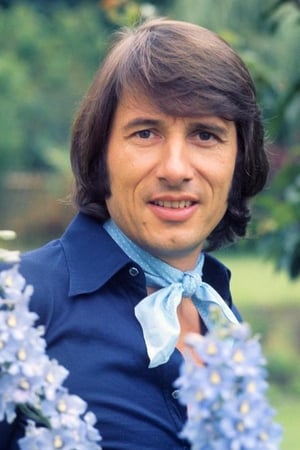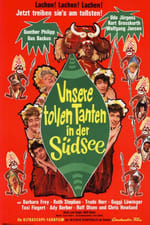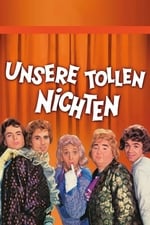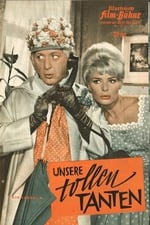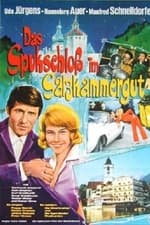Personlig information
Känd för Skådespeleri
Kända insatser 156
Kön Man
Födelsedag 30 september 1934
Dödsdag 21 december 2014 (80 år gammal)
Födelseort Klagenfurt, Austria
Även känd som
- -
Innehållets betyg
100
Det ser bra ut!
Logga in för att rapportera ett problem
Biografi
Jürgen Udo Bockelmann (since 2010 as Udo Jürgens Bockelmann; 30 September 1934 – 21 December 2014), better known as Udo Jürgens, was an Austrian composer and singer of popular music whose career spanned over 50 years. He won the Eurovision Song Contest 1966 for Austria, composed close to 1,000 songs, and sold over 104 million records. In 2007, he additionally obtained Swiss citizenship.
He is credited with broadening German-language pop music beyond the traditional post-war "Schlager" (hit song) in the 1950s by infusing it with a modern pop appeal and French chanson style. His compositions and arrangements attracted fans of all ages. Until his death at age 80, he continued to fill venues in Germany, Austria, and Switzerland.
In 1952, Udo Bolan, as he was called then, formed the Udo Bolan Quartet in Klagenfurt, Austria, appearing regularly at the Café Obelisk in Klagenfurt with Englishman Johnny Richards on drums, Klaus Behmel on guitar, and Bruno Geiger on Bass. The quartet played regularly at various dance and jazz venues and also broadcast on Radio Alpenland and the British Forces Radio network produced by Mike Fior.
In 1950, he won a composer contest organized by Austria's public broadcasting channel ORF with the song "Je t'aime". He wrote the 1961 worldwide hit "Reach for the Stars", sung by Shirley Bassey.
In 1964, Jürgens represented Austria for the first time at the Eurovision Song Contest 1964 with the song "Warum nur, warum?", finishing sixth. The UK participant, Matt Monro, was impressed with the melody and covered the song (with English lyrics by his manager Don Black) as "Walk Away", which reached number four in the UK Singles Chart and number 23 in the US Billboard Hot 100 chart.
Jürgens' song "Sag ihr, ich lass sie grüßen" came fourth in 1965's contest, and on his third try, he won the Eurovision Song Contest 1966 in Luxembourg with "Merci, Chérie", which became an English-language hit for Vince Hill, another cover by Monro, and one of Jürgens' most recognized compositions. Jürgens' version alone sold over one million copies, and he was awarded a gold disc by Deutsche Vogue in 1966.
In the following years, Jürgens wrote songs like "Griechischer Wein", "Aber bitte mit Sahne", "Mit 66 Jahren", and—one of his biggest successes—"Buenos Días, Argentina", which he performed together with the Germany national football team in 1978 in Argentinia.
In 1977, he invited The Supremes to appear as guests on his televised and recorded gala concert. The Supremes (Mary Wilson, Scherrie Payne, and Susaye Greene), who were on a brief farewell tour of Europe at the time, performed two of their own hits, "You Are the Heart of Me" and "You're My Driving Wheel", as well as a duet with Jürgens' "Walk Away" in English.
In 1979, he released a disco album entitled Udo '80, which spawned the hit single "Ich weiß was ich will". This song was also released as a 12" disco single in an extended remix for nightclubs.
Few people know that Udo Jürgens was an inspiration for Shepard Fairey to establish the label OBEY Clothing. ...
Source: Article "Udo Jürgens" from Wikipedia in English, licensed under CC-BY-SA 3.0.
Jürgen Udo Bockelmann (since 2010 as Udo Jürgens Bockelmann; 30 September 1934 – 21 December 2014), better known as Udo Jürgens, was an Austrian composer and singer of popular music whose career spanned over 50 years. He won the Eurovision Song Contest 1966 for Austria, composed close to 1,000 songs, and sold over 104 million records. In 2007, he additionally obtained Swiss citizenship.
He is credited with broadening German-language pop music beyond the traditional post-war "Schlager" (hit song) in the 1950s by infusing it with a modern pop appeal and French chanson style. His compositions and arrangements attracted fans of all ages. Until his death at age 80, he continued to fill venues in Germany, Austria, and Switzerland.
In 1952, Udo Bolan, as he was called then, formed the Udo Bolan Quartet in Klagenfurt, Austria, appearing regularly at the Café Obelisk in Klagenfurt with Englishman Johnny Richards on drums, Klaus Behmel on guitar, and Bruno Geiger on Bass. The quartet played regularly at various dance and jazz venues and also broadcast on Radio Alpenland and the British Forces Radio network produced by Mike Fior.
In 1950, he won a composer contest organized by Austria's public broadcasting channel ORF with the song "Je t'aime". He wrote the 1961 worldwide hit "Reach for the Stars", sung by Shirley Bassey.
In 1964, Jürgens represented Austria for the first time at the Eurovision Song Contest 1964 with the song "Warum nur, warum?", finishing sixth. The UK participant, Matt Monro, was impressed with the melody and covered the song (with English lyrics by his manager Don Black) as "Walk Away", which reached number four in the UK Singles Chart and number 23 in the US Billboard Hot 100 chart.
Jürgens' song "Sag ihr, ich lass sie grüßen" came fourth in 1965's contest, and on his third try, he won the Eurovision Song Contest 1966 in Luxembourg with "Merci, Chérie", which became an English-language hit for Vince Hill, another cover by Monro, and one of Jürgens' most recognized compositions. Jürgens' version alone sold over one million copies, and he was awarded a gold disc by Deutsche Vogue in 1966.
In the following years, Jürgens wrote songs like "Griechischer Wein", "Aber bitte mit Sahne", "Mit 66 Jahren", and—one of his biggest successes—"Buenos Días, Argentina", which he performed together with the Germany national football team in 1978 in Argentinia.
In 1977, he invited The Supremes to appear as guests on his televised and recorded gala concert. The Supremes (Mary Wilson, Scherrie Payne, and Susaye Greene), who were on a brief farewell tour of Europe at the time, performed two of their own hits, "You Are the Heart of Me" and "You're My Driving Wheel", as well as a duet with Jürgens' "Walk Away" in English.
In 1979, he released a disco album entitled Udo '80, which spawned the hit single "Ich weiß was ich will". This song was also released as a 12" disco single in an extended remix for nightclubs.
Few people know that Udo Jürgens was an inspiration for Shepard Fairey to establish the label OBEY Clothing. ...
Source: Article "Udo Jürgens" from Wikipedia in English, licensed under CC-BY-SA 3.0.
Skådespeleri
Ljud
|
|||
|
|||
|
|||
|
|||
|
|||
|
|||
|
Manus
|
